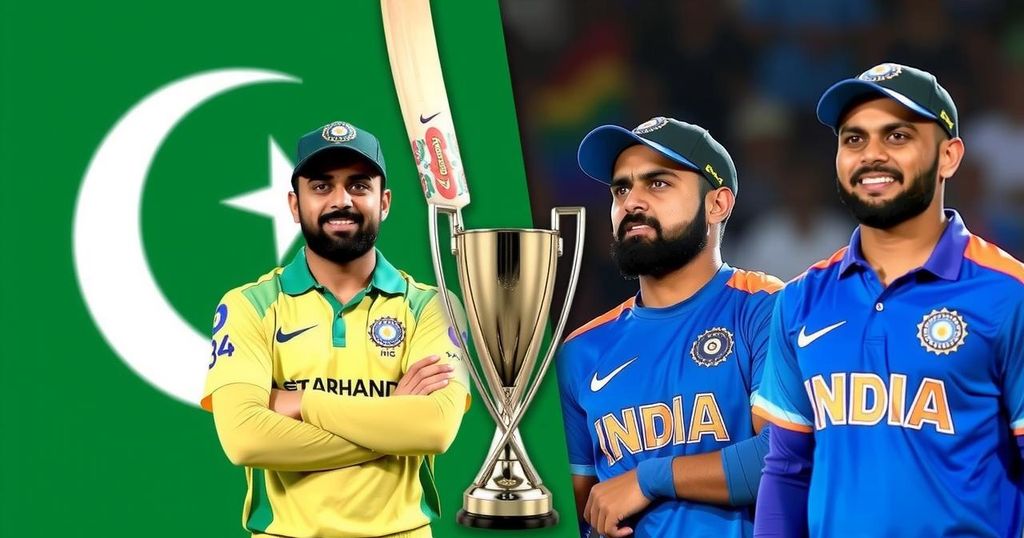2025 Champions Trophy: India’s Reluctance to Play in Pakistan and the Implications Ahead
The 2025 ICC Champions Trophy is scheduled to take place in Pakistan, but India has signaled it will not participate due to political tensions. India has not played in Pakistan since 2008, and this refusal could force the ICC to consider alternative arrangements for the tournament, which is set for February 19 to March 9, 2025. Continued discussions among stakeholders are critical as time is running out to finalize plans before the tournament commences.
The 2025 ICC Champions Trophy is set to take place in Pakistan from February 19 to March 9. However, it has been reported that the Indian cricket team is unwilling to travel to Pakistan for the tournament, primarily due to ongoing political tensions between the two countries. Since 2008, India has not played cricket matches in Pakistan, stemming from a series of diplomatic issues and security concerns. This tournament will mark the first time a major international cricket event is hosted in Pakistan since the 1996 World Cup alongside India and Sri Lanka. The competition includes eight teams: Pakistan, India, Bangladesh, England, Australia, South Africa, New Zealand, and Afghanistan, divided into two groups of four, with the top two from each group reaching the semi-finals. The Pakistan Cricket Board (PCB) has identified Rawalpindi, Karachi, and Lahore as potential host cities for the tournament. An official schedule was anticipated to be announced, but the situation remains unclear due to India’s current stance. Historical events, such as the 2009 terror attacks on the Sri Lankan cricket team, have led to restrictions on international cricket in Pakistan until the country began to host matches again in 2015. The Board of Control for Cricket in India (BCCI) has conveyed to the International Cricket Council (ICC) their decision not to travel, emphasizing that approval from the Indian government is needed for such a move. The PCB is now consulting with its government regarding further steps. PCB chairman Mohsin Naqvi expressed his unwillingness to consider a shared hosting model. The ICC has faced similar challenges in the past, where teams have opted not to play in certain countries due to security concerns. While it seems unlikely that the tournament would proceed without India, alternate arrangements, including potential matches in the UAE, are being considered. Continued dialogue is crucial as the ICC seeks a solution before the tournament begins. As the cricketing community awaits further developments, time is of the essence to resolve this pressing situation. The absence of India from the tournament could significantly impact viewership and revenue, enhancing the urgency of negotiations between the involved parties.
The tension between India and Pakistan, primarily political, has long influenced sporting relations between the two nations, particularly in cricket. Historical incidents such as the 2008 terrorist attacks have led to India’s refusal to play in Pakistan. Following the revival of international cricket in Pakistan in 2015, the country has been eager to host major events. The 2025 ICC Champions Trophy represents a significant opportunity for Pakistan, as it would showcase its ability to host an international tournament. However, the prospect is threatened by India’s current position and the requirement for governmental approval for travel.
In summary, the future of the 2025 Champions Trophy rests precariously on the resolution of India’s refusal to participate in matches hosted by Pakistan amid longstanding political tensions. As the PCB consults with its government and discussions with the ICC continue, it remains critical for all parties to find a solution that allows the tournament to proceed smoothly and inclusively. Given the significance of India in international cricket, their absence could pose considerable financial repercussions for the event.
Original Source: www.skysports.com




Post Comment